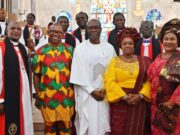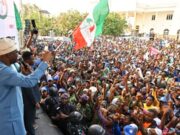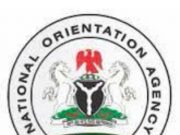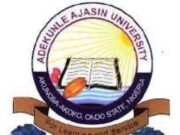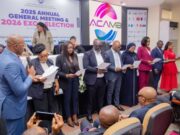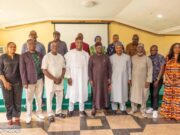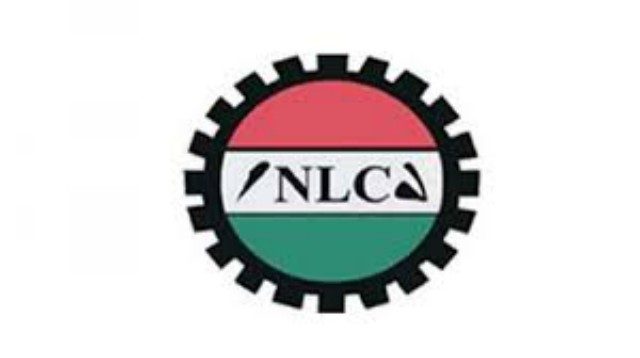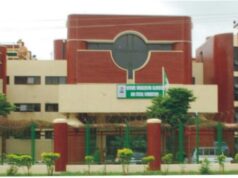The controversy surrounding the registration of the Congress of Nigerian University Academics and the Nigeria Association of Medical and Dental Lecturers in Academics by the Federal Government deepened on Saturday with the Nigeria Labour Congress demanding the immediate withdrawal of the bodies’ certificates with effect.
The NLC said their registration could not stand because it contravened the laws, which had been tested and affirmed by the National Industrial Court of Nigeria, the Appeal Court and the Supreme Court.
The President, NLC, Ayuba Wabba, made the request in a protest letter to the Minister of Labour and Employment, Dr Chris Ngige, titled, ‘Organised labour rejects the purported registration of new trade unions for academics in Nigerian universities’.
The letter with reference number NLC/NS/E.16/654 and dated October 5, 2022, was obtained by Sunday PUNCH in Abuja.
The document was copied to the Director-General, Department of State Services, President of the Trade Union Congress of Nigeria, all affiliate unions of the NLC and Femi Falana (SAN).
Wabba said the foundation of the laws in the NICN, Appeal Court and Apex Court was set in international labour standards, particularly the International Labour Organisation (Fundamental Conventions 87 and 98), which were some of the first ILO standards ratified by Nigeria upon the attainment of independence in 1960.
He cited some sections of the nation’s labour laws to back the NLC’s position that the CONUA and NAMDA were illegal.
“Honourable minister, in view of the foregoing, we demand that you respect the doctrine of the rule of law, especially the clear provisions of our labour laws cited, and withdraw the certificates of registration issued to the two new trade unions. While we look forward to your kind consideration of our demands, please accept the assurances of our warm regards,” Wabba emphasized.
According to him, having ratified ILO Conventions 87 and 98, Nigeria has domesticated the same in the constitution, especially in Section 40, which guarantees freedom of association.
The constitution, he said, went on to regulate freedom of association in Section 41(2), pursuant to public decorum and order since where one right ends, another begins.
The NLC President said Nigeria’s labour laws, in furtherance of the constitutional regulation on freedom of association, provided certain conditions for the registration of trade unions upon compliance which certificates of registration could be given to trade unions by the Ministry of Labour.
Wabba cited Section 3 of the Trade Union Act, which stipulates the conditions for the registration of trade unions thus:
“(1) An application for the registration of a trade union shall be made to the Registrar in the prescribed form and shall be signed (a) in the case of a trade union of workers, by at least 50 members of the union; and (b) in the case of a trade union of employers, by at least two members of the union. (2) No combination of workers or employers shall be registered as a trade union save with the approval of the minister on his being satisfied that it is expedient to register the union either by regrouping existing trade unions, registering a new trade union or otherwise howsoever, but no trade union shall be registered to represent workers or employers in a place where there already exists a trade union.
“Section 5 of Trade Union Act went on to stipulate the following additional conditions for the registration of a new trade union:
“(1) Where an application for the registration of a trade union is received by the Registrar, the following provisions of this section shall apply of a trade union is received by the Registrar provided that if the application appears to the Registrar to be defective in any respect, he shall notify the applicant accordingly and shall take no further action in relation thereto until the application has been amended to his satisfaction or a fresh application is made in place thereof.
“(2) The Registrar shall cause a notice of the application to be published in the Federal Gazette, stating that objections to the registration of the trade union in question may be submitted to him in writing during the period of three months beginning with the date of the gazette in which the notice is published.”
Wabba added, “Clearly, from the provisions of Section 3(2) and sections 5(2), 5(3) and 5(4), there is no basis for the purported registration of CONUA and NAMDA as both entities failed woefully to satisfy the precedent conditions provided by the Trade Union Act for the registration of trade unions.
“As earlier posited, the legitimacy of granting registration certificates to groups in a sector where unions already exist has been tested in our courts from the National Industrial Court to the Supreme Court.
“In the case of Erasmus Osawe Vs Registrar of Trade Unions, and also the case of Nigeria Nurses Association Vs Attorney-General of the Federation Unreported Suit No. S.C. 69/1980 delivered on 6th of November, 1981, it is trite that anywhere there exists a union registered to cater for a category of workforce; it would be unpardonable proliferation and offence against the constitution and Trade Unions Act for any other union to be registered for the same category of workers.
“And this position was more recently restated by the Supreme Court in a judgment delivered on January 11, 2008 and cited as (2008) 1 S.C. (PT.III) Supreme Court Justices led by Hon. Justice Sylvester Onu and four others.”
Meanwhile, CONUA has revealed that Ngige promised to follow the due process in ensuring that the withheld salaries of its members are released.
According to the union, its members did not participate in the strike that was declared by the Academic Staff Union of Universities.
Speaking in an interview with one of our correspondents in Abuja, the National Coordinator of the union, Dr Niyi Sunmonu, explained that the lecturers under CONUA were not able to discharge their duties appropriately due to the fact that the universities were shut.
He stated, “CONUA as a union was and is not on strike. We are limited to do our jobs in the universities because the universities were shut down. For instance, I have finished lectures, same for a number of our colleagues in Ife. Having said that, we are not happy that our salaries are seized. We are actually short-changed because we are not on strike and our salaries are withheld.
“That particular matter came up with the minister during our discussion and he has promised to go through due process and ensure that our members are paid their salaries.”
Credit: punchng.com



















